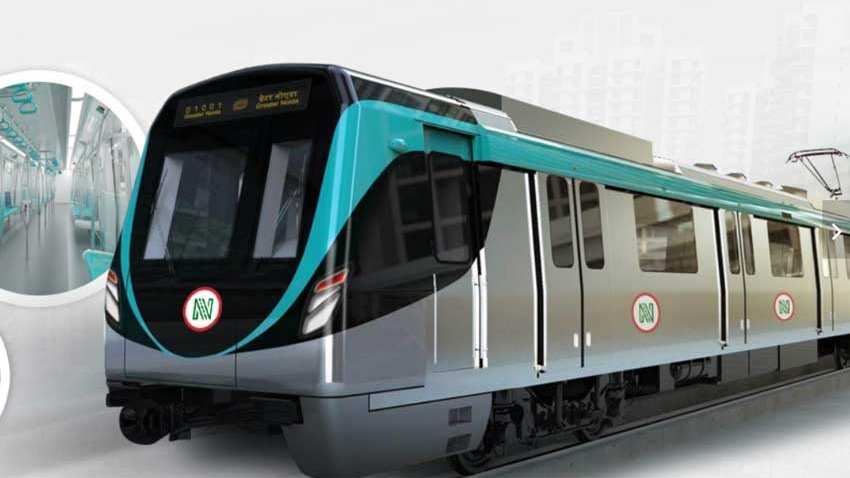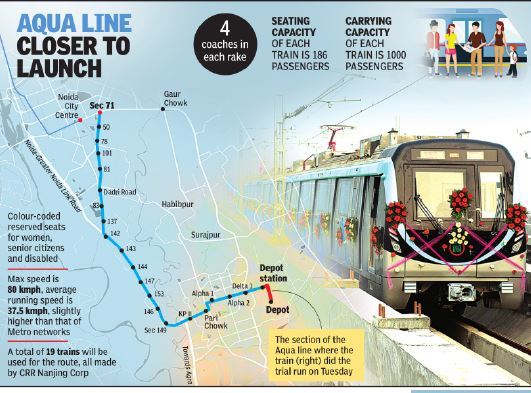On Friday, Uttar Pradesh chief minister Yogi Adityanath inaugurated the much-awaited metro rail connecting the twin cities of Noida and Greater Noida in Gautam Buddh Nagar.
Metro’s Aqua line linking Noida and Gr Noida opens for public
The work on the Aqua Line was started back in May 2015 and was accomplished in a record time of three and a half years. The Metro service is estimated to benefit a huge number of travellers in both the cities, where mass public transport has remained frequently inaccessible.
There are a total number of 21 stations on the rail corridor and is also known as the Aqua Line which will run in the middle of Sector 71 station in Noida and the Depot Station in Greater Noida. Out of 21 stations in the rail corridor, 15 of them is in Noida and six in Greater Noida which is spread more than a distance of 29.7 km.
Uttar Pradesh chief minister Yogi Adityanath during the inauguration function, said, “Today we dedicate the Noida Greater Noida metro rail to the people of the region. The Aqua Line, which has been completed in record time, will provide better connectivity to the region and prove to a milestone in development of the region”.
Here is everything you need to know:
- On October 2014, UP Government approves the metro project and in September 2015 the work progress in nearby Sec-71, Noida. It is constructed at the cost of Rs 5,503 crore.
- The rail corridor is 29.7 kilometre long with 21 stations and will be the longest Metro line in the country and was inaugurated on Friday, 25th January 2019. There are 15 stations in Noida and six in Greater Noida. The earlier record for longest metro line was hold by the Hyderabad Metro which was of 29km.
- The Aqua Line will stop on the Sector 76, 101, 81, NSEZ, Noida Sector 83, 137, 142, 143, 144, 145, 146, 147, 148, and Greater Noida’s Knowledge Park II, Pari Chowk, Alpha 1, Delta 1, GNIDA Office and Depot Metro stations.
- Travellers can purchase QR-coded paper tickets or else can use smart cards. The early payment for a new mobility card is going to be Rs 300, as in contradiction of Rs 200 for Delhi Metro. The tokens and smart cards of Delhi Metro will not be usable on this line.
- The line will produce solar energy and will also have women drivers, as well as free water and toilet amenities for travellers.
- Uttar Pradesh Provincial Armed Constabulary, 49th battalion will be in charge for the security on the Aqua Line and some private security workforces will also be set out.
- The cost for travelling one station will be Rs 10 on a QR-coded ticket and Rs 9 through smart card. For travelling 2km, the ticket will cost Rs 15 and Rs 13.50 on smart card. For travelling 3Km to 6km the ticket will cost Rs 20 through ticket and Rs 18 on smart card. And for 7 to 9km the ticket will cost Rs 30 and Rs 27 on smart card. Whereas, for travelling more than 10 stations however less than 16 stations, it will cost Rs 40 through ticket and Rs 36 through the smart card. And travelling further than 16 stations would cost Rs 50 through ticket and Rs 45 through the smart card.


Leave a Reply